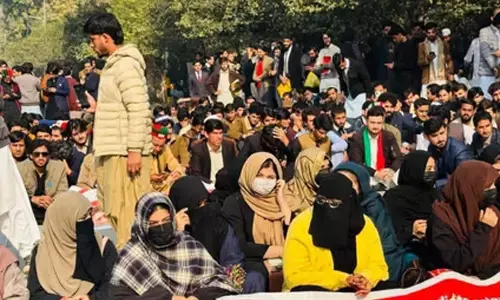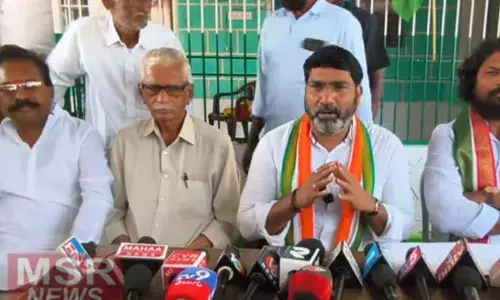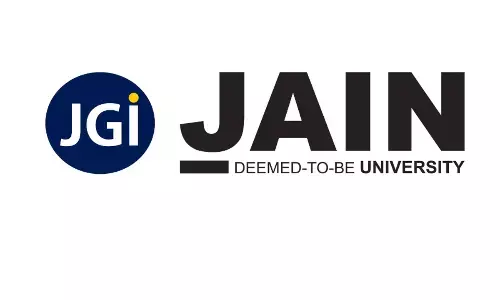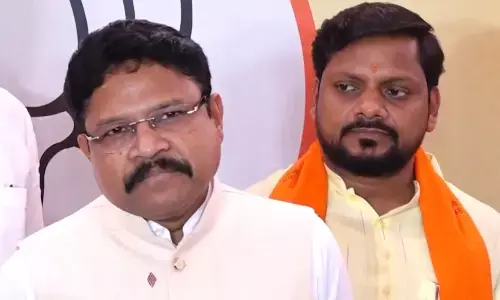Supreme Court asks Centre to clarify stand on why Reliance Jio be not asked to pay AGR related dues
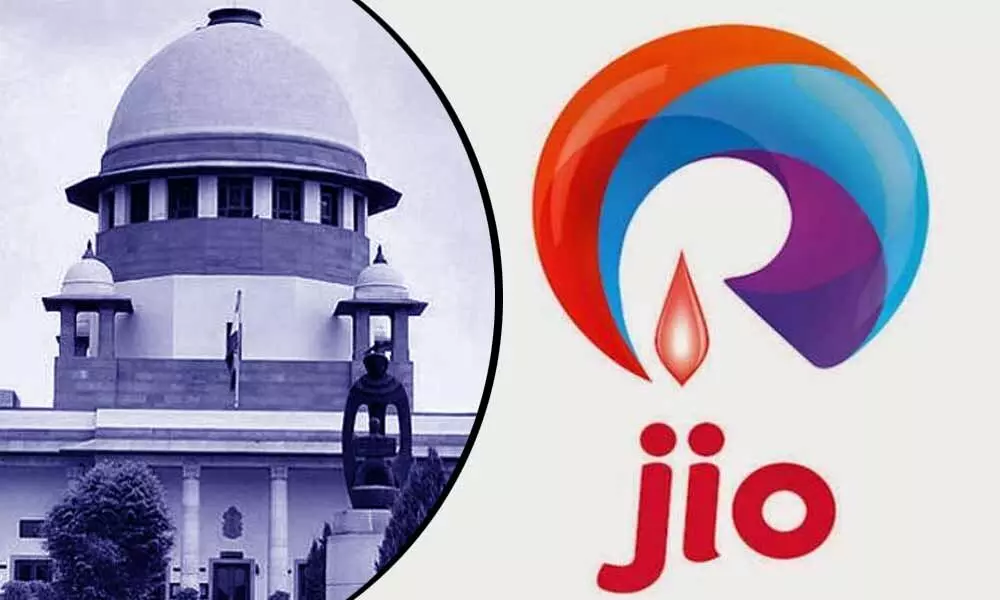
SC asks Centre to clarify stand on why Reliance Jio be not asked to pay AGR related dues
Solicitor General Tushar Mehta, appearing for Centre and DoT, said the government would support any view taken by the top court resulting in the recovery of the AGR related dues.
New Delhi: With differences cropping up between two ministries, the Supreme Court on Monday asked Centre to clarify its stand on why Reliance Jio, which is earning revenue by sharing Reliance Communication's (RCom) spectrum be not asked to pay the Adjusted Gross Revenue (AGR) related dues to the government.
The Centre told the top court there is a difference of opinion between two of its ministers (Department of Telecommunication and Ministry of Corporate Affairs) on the issue of sale of the spectrum during insolvency proceedings.
Solicitor General Tushar Mehta, appearing for Centre and DoT, said the government would support any view taken by the top court resulting in the recovery of the AGR related dues.
A bench of Justices Arun Mishra, S Abdul Nazeer and M R Shah asked the Department of Telecom (DoT) to give year-wise dues of RCom by Tuesday saying that will be crucial for its verdict on the issue and posted the matter for further hearing for August 18.
During the hearing, senior advocate Harish Salve, appearing for Jio said that the company was not involved in any proceedings under Insolvency and Bankruptcy Code (IBC) and was not acquiring RCom's spectrum.
Mehta said that spectrum sharing is different from trading and the user must pay the AGR related dues.
On the divergent view between the two ministries, Mehta said the DoT has constantly maintained a stand that spectrum cannot be sold during insolvency proceedings while the Ministry of Corporate Affairs (MCA) had sought to allow spectrum sale for maximization of value.
The law officer pointed out that the spectrum is allowed to be used by the telecom companies under a contract but the ownership of it does not get transferred.
He said that spectrum can never be subject matter of the IBC proceedings and it is a natural resource which is owned by the people and held by the government in trusteeship.
"This has been the consistent position of the DoT and it has been upheld by the top court," he said, adding that in 2019, the government has issued show cause notice to RCom as to why the spectrum should not be revoked due to non-payment of dues.
The bench said it wants to know, since when RCom has not paid its dues and DoT should also give the year-wise details of demand raised against the company.
It also sought to know the details of the resolution plan approved by the committee of creditors for the RCom under the IBC.
Senior advocate Shyam Divan, representing Resolution Professional for RCom, said the plan of UV Asset Reconstruction Company (UV ARC) has been approved and according to it RCom will be acquired, its enterprise business will be rebuilt and assets monetized.
He said that after RCom sale to UV ARC, banks (financial creditors) will be issued zero coupon bonds worth Rs 15,140 crores rupees redeemable in three to five years.
The bench referred to the earlier proposed deal of RJio and RCom (which did not materialize) and said RCom claimed its assets valued at Rs 35,000 crore.
"How has the value depreciated so significantly? Where have the assets disappeared," the bench asked.
Divan said that in 2018-19 Banks, RCom wanted to sell its company to evade the insolvency proceedings but the deal did not materialise and the IBC became the preferred route.
He said that Spectrum is an asset in the hands of the company and its license can be a subject matter of IBC proceedings and it can be bought and sold.
He said that RCom's license cannot be terminated during bankruptcy proceedings. The hearing remained inconclusive and the bench said that it would hear other parties on August 18.
At the fag end of hearing, Salve told the bench that he will address the court on legal issues of whether the spectrum can be sold under the bankruptcy process.
On August 14, the top court had sought the details of spectrum sharing pact between RCom and RJio and said as to why the company using the spectrum of the other firm cannot be asked to pay the AGR related dues to the government.
The top court had asked the counsels for Reliance Jio and RCom to place their spectrum sharing agreements on record.
It had asked other telecom companies under insolvency, including Aircel Limited, Aircel Cellular Limited and Dishnet Wireless Limited and Videocon Telecommunications Ltd. to specify who is using the spectrum and place the details of arrangement and necessary documents on record.
On Aug 10, the top court had asked the DoT to apprise it as to how it plans to recover the AGR related dues from telecom companies facing insolvency proceedings and whether spectrum given to these companies can be sold.
Earlier, the top court had made it clear it will not hear "even for a second" the arguments on reassessment or re-calculation of the AGR related dues of telecom companies which run into about Rs 1.6 lakh crore.
The top court had asked the telecom companies including Bharti Airtel, Vodafone to file their books of accounts for the last ten year and give a reasonable time frame for paying the AGR dues.
The apex court had in October 2019 delivered the verdict on the AGR issue for calculating government dues of telecom companies such as licence fee and spectrum usage charges.
After the top court had rejected pleas by Vodafone Idea, Bharti Airtel and Tata Teleservices seeking review of the judgement which widened the definition of AGR by including non-telecom revenues, the DoT had in March moved a plea seeking staggered payment over 20 years.








